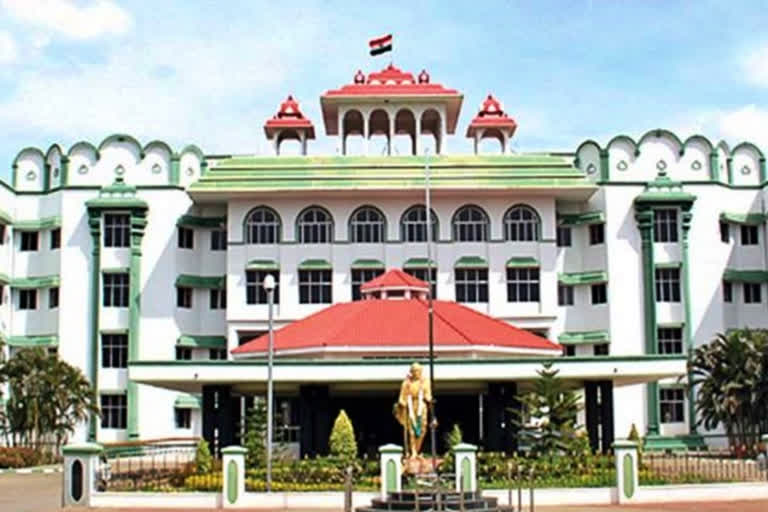Chennai: When the DMK government led by Chief Minister MK Stalin appointed 24 temple priests from all communities in August 2021, a couple of months after assuming office, it was hailed as a major milestone in the progress towards social equality and justice. Of the 24, five were Dalits, and they have become archakas (temple priests) for the first time. Now, it appears to have hit a wall with the Madurai Bench of Madras High Court setting aside the appointment of two non-Brahmin priests serving in Trichy.
The duo, S Prabhu and S Jayabalan, with requisite qualifications and training, were appointed to the Kumara Vayalur Murugan temple. They were among the candidates who have completed the training at the government-run institution. As such, the Association of Trained Archakas (ATA) has urged the state government to challenge the judgment.
Relying on Agamas, the scriptures governing temple rituals and practices, Justice GR Swaminathan held that only those from the 'Gurukal' and 'Adhi Sivachariyar' subsects of the Brahmin community could become priests of that temple. “Only Adhi Saivars or Sivachariyars or Gurukals, who have gained knowledge in the agamas, are eligible and qualified to be appointed as Archakas for the said temple,” he observed in his verdict, passed on a petition from K Karthick and S Parameswaran, challenging the appointments.
Appointment of hereditary priests in accordance with agamas is not violative of the constitutional principle of equality, the judge said and pointed out that even Brahmins of the Smartha sect are not eligible to be priests of the said temple, governed by the Kamika agama. “If persons belonging to the Scheduled Caste alone have been disqualified, then such an agama will have to be ignored as unconstitutional. Such is not the case here. On the other hand, this is a question of upholding fundamental rights of a denomination,” he reasoned.
Further, the judge pointed out that the petitioners, though not formally appointed, were serving as archakas in the temple for over a decade. Hence, “there is no justification for not considering their case,” he said and directed the authorities to decide on appointing them within two months.
However, the ATA president V Renganathan says, “This verdict is contrary to the 2015 Supreme Court judgment which makes it very clear that nobody could claim priesthood based on caste and descent and if the agamas are not in tune with the constitutional principles, they could not be accepted. It is unfortunate that the court accepted the claim of the petitioners. In temples under the administration of the government, not even denominational Brahmins can claim exclusive right of the priesthood. Article 26 of the Constitution provides for a denomination to establish and maintain temples. This temple is neither built by Brahmins nor administered by them.”
He also questioned the rationale of deciding the Kumara Vayalur temple as agamic when the High Court had constituted a committee to ascertain which are agama temples in Tamil Nadu. “What will happen if the temple is found to be non-agamic. The petitioners have failed to produce any evidence to substantiate their claim of being either Adhi Svachariayars or Gurukuls. Of the Uttara Kamika agama, containing 98 chapters and 7128 slokas, they have submitted only 4 pages in the court which was also of questionable translation. But, the submission of the defendants that they are Adhi Saivars was not at all considered,” he contended.
The DMK and its parent organisation, the rationalist Dravidar Kazhagam (DK) have been pressing for priests from all communities for decades. In 1970, the Karunanidhi Government issued a Government Order, but it was struck down by the Supreme Court which insisted upon proper training for such appointments. Then, in 2006 his government issued a GO to this effect, which was upheld by the Supreme Court in 2015.
The ATA and the People's Right Protection Centre (PRPC) of Advocate Vanchinanthan have demanded that the state government go in for an appeal against the judgment suitably amend the Hindu Religious and Charitable Endowments Act to ensure equality and social justice in temples.



